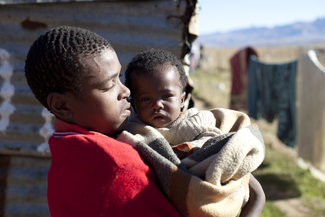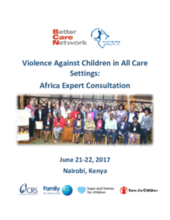

Displaying 261 - 270 of 579
This qualitative study explores 49 orphaned children who were observed in a non-governmental organization group setting in a small, rural village located in Eastern Cape, South Africa.
This study is the first randomized controlled trial design to rigorously test the effectiveness of a parenting program on reducing the risk of child maltreatment in sub-Saharan Africa using both observational and self-report assessments.
A Kinship Care Grant has been proposed in South Africa due to a strained child protection system in the country.
This qualitative study investigates how a sample of male care-leavers from Girls and Boys Town South Africa transferred these social skills into independent living.
In efforts to prioritise family preservation, family reunification and foster care in KwaZulu-Natal (KZN), adoption has become a slow process in the South African province, with only eight adoptions finalised in the first eleven months of 2016. New changes may mean more inter-country adoptions, while many domestic adoptions remain blocked or opposed by the KZN Head of Department for Social Development.
This chapter of Child Maltreatment in Residential Care describes Interaction Competencies with Children – for Caregivers (ICC-C), a preventative intervention approach to improve the quality of care and reduce the incidence of maltreatment within institutional care settings in Sub-Saharan Africa.
This qualitative study explored the emotional experiences of 15 adolescents placed in foster care in South Africa.
This paper is based on the findings from a qualitative study with orphaned children in South Africa, their teachers and caregivers, which investigated the capacity of extended families affected by poverty and HIV/AIDS to care for and support orphaned children.
On 21-22 June 2017, the African Child Policy Forum and Better Care Network - with the support of Catholic Relief Services, Family for Every Child, Hope and Homes for Children and Save the Children - convened 40 leaders representing child rights bodies, regional economic communities, national governments and civil society in Nairobi, Kenya for the Africa Expert Consultation: Violence Against Children in All Care Settings.
This study explored the resilience of children living with HIV from the perspective of foster parents residing in a community in KwaZulu-Natal, South Africa.


